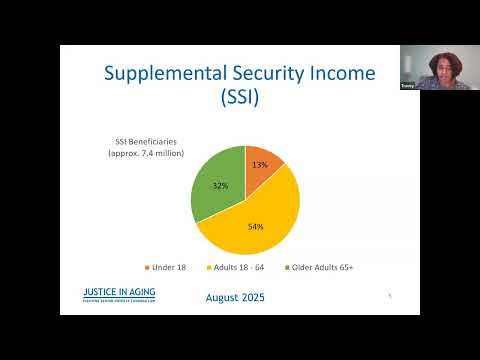
Krueger Joins Good Govermment Groups, Advocates at 'Reform Albany Day'
Liz Krueger
April 22, 2007
Albany—New York State Senator Liz Krueger joined Common Cause, the Brennan Center, the League of Women Voters, NYPIRG, and hundreds of reform advocates today in marking Reform Day in Albany. The "Day of Action 2007" challenged the Governor and the legislature to act on proposals to:
Reform the way electoral campaigns are funded and conducted;
Change the way legislative district lines are drawn;
Improve the transparency, accountability and rules in the legislature.
"Over the last few months a whole lot of legislators have been running around their districts saying 'Look! Look! We're reformers! We've fixed Albany!' when we have only just begun to reform New York State government," Krueger said. "Campaign finance, ending the ability of legislators to draw our own district lines, and a comprehensive change in the way the legislature operates still remain very much un-done. Our failure to address these critical issues is undermining the limited reforms we have already enacted."
CAMPAIGN FINANCE REFORM
Krueger is one of a number of Democratic co-sponsors of S3108 (Schneiderman), a bill that would establish a program for the public financing of elections for state offices of governor, lieutenant governor, state comptroller, attorney general, state senator, member of assembly and district attorneys. The bill provides for involving matching funds and contribution limits for participating candidates. Oversight would be administered by a campaign finance board.
Krueger is also the lead sponsor of S1678, which would bring clarity to how political candidates can spend campaign monies prior to and while in elected office and even after they leave office.
"We have laws regulating how political candidates can raise campaign money, it is only common sense to have equal clarity for how that money can be spent," Krueger said. "The purpose of campaign funds is clear—to help those running for public office to get elected, and to assist with legitimate expenses related to official duties incurred when elected. Campaign funds should not be used for any other purpose."
REDISTRICING REFORM
The Senate Democrats have made repeated calls for an overhaul of the state's redistricting system, and have called for a non-partisan redistricting commission that removes the ability of incumbent legislators to draw their own district boundaries.
These lines are revised every ten years to reflect the State’s population changes.
"The general rule in New York politics has been that the party in control, controls the redistricting process," Krueger said. "However, what the current redistricting process emphasizes is political self-preservation, not openness, sound public policy, or even a basic respect for democracy. Letting legislators draw our own districts is a clear conflict of interest."
Senator Eric Schneiderman is also the author of S2047, a bill co-sponsored by Krueger, which would create an independent, non-partisan redistricting panel for congressional, senate, and assembly districts. The panel would consist of 5 members, 4 of which would be appointed by the 4 majority and minority legislative leaders. A 5th panelist would be collectively selected by the 4 leaders, and would be assigned with creating any new congressional, senate, or assembly districts. The bill has remained stalled in committee for several years.
"There will not be a real fundamental change in the way this place is run without redistricting reform," Krueger said.
IMPROVING TRANSPARENCY AND ACCOUNTABILITY IN THE LEGISLATURE
Two weeks into the current session, Senator Krueger led the Senate Democrats in proposing sweeping self-regulatory legislative rules changes for the Senate, which were endorsed by many of the good government groups that organized today's Reform Day.
“The results of the last two elections should have been a clarion call for legislators that New Yorkers are not happy with how this government is being run. The phrase Reforming Albany is very catchy. However, it should be more than a campaign slogan—it should be a promise we make and keep. We are losing the confidence of voters," Krueger said.
The Democratic reform package included 8 key areas:
1.) Equal Resources for Senators;
2.) Elimination of the "canvass of agreement" and end of limit on discharge motions;
3.) Eliminates the requirement that Rules Changes be referred to the Rules Committee for consideration and the creation of a new oversight committee, the Rules and Administration Committee;
4.) Committee Reforms:
i.) allowing the ranking member or 1/3 or committee members to place a bill on the committee agenda as well as the ability to hold public hearings;
ii.) the requirement of committee attendance;
iii.) allowing any Senator to co-sponsor a bill;
iv.) requiring detailed committee reports on each bill reported to the floor and available on the internet.
5.) Off the Floor Changes: Prohibits "off the floor" committee meetings, except upon consent of Ranking member or 2/3 of members;
6.) Member Items:
i.) requires complete disclosure of items in budget bills, including name of sponsor, funding recipient and amount of funding;
ii.) prohibits member item funding for private, for profit entities;
iii.) requires member item disclosure on Senate web site.
7.) Ethical Standards: bars other than de minimis gifts below $25;
8.) Conference Committee: Creates standing conference committee and a process to conference similar—but not "same as"—bills.
Krueger has also introduced S3288, which would impose a 10-day waiting period on budget legislation to ensure that budget bills can be adequately reviewed and revised before a final vote is taken.
"To preserve the integrity of our budget, the process must stop being so rushed," Krueger said. "Passing revised budget bills with huge changes, without explanatory memos, without time for anyone to review them, with the actual bills themselves printed late at night (or early the next morning because the printers broke down), simply cannot be argued as responsible decision-making. It's more like impulse buying—particularly when the clock is striking midnight, noting the budget deadline, when votes are cast."
"Miriam-Webster's definition of reform is ' to amend or improve by change of form or removal of faults or abuses.' Despite good intentions, we have yet to wise up to the fact that tackling reform through a piecemeal approach will at-best leave faults in our system, or worse, create new ones. Under both circumstances abuse can continue to occur," Krueger concluded. "The credibility of the legislature has been wounded, and it will take more than a few band-aids to fix that.”
-30-



